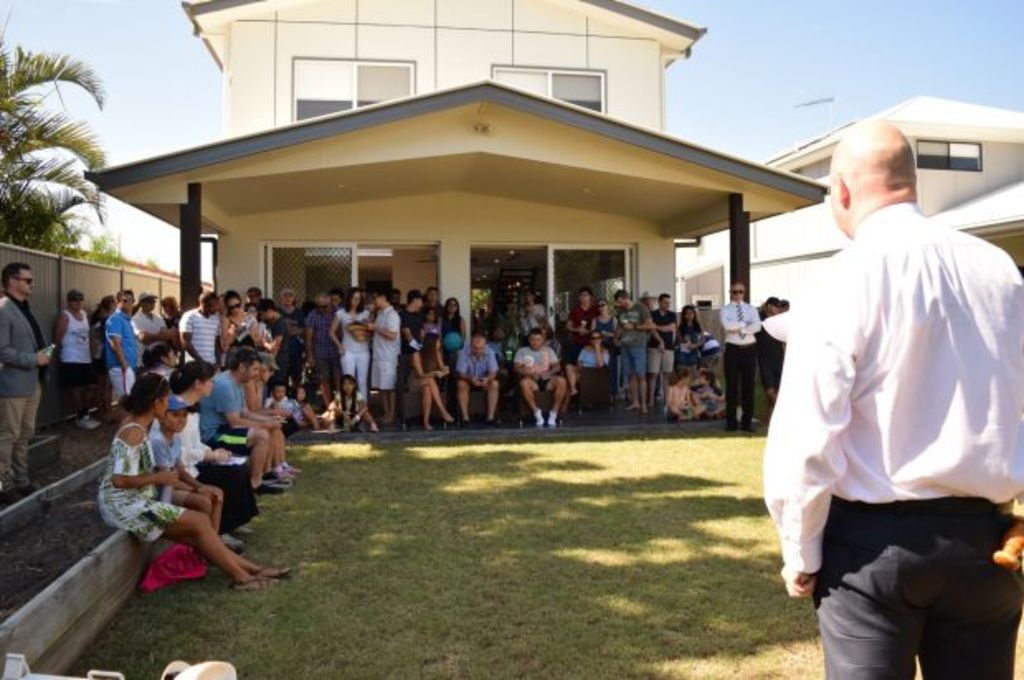Sunnybank’s inflated property market survives rapid retreat of foreign buyers

A property frenzy spanning several years in south Brisbane’s Sunnybank has ended, following a crackdown by Beijing and Australian banks on Chinese nationals buying property in Australia.
A cluster of suburbs surrounding the thriving Sunnybank Plaza has long been a favourite of Asian buyers but the past 12 months has seen record demand from the Chinese community in particular. It’s lead to huge competition, high prices, and a busy few years for agents.
Place Sunnybank‘s Owen Chen said the effect that Chinese interest had caused was clear. “All this money from overseas has pushed the price quite high,” he said.
But since Beijing imposed restrictions on Chinese nationals taking money out of the country and banks cracked down on lending to foreign citizens, the wind had come out of the sails of the unique property market, he said.
Mr Chen said he’d seen a difference since the new rules came into effect.
“The only thing we see is properties take a bit longer to sell,” he said. “And last year we had 11 bidders for most auctions. Now we’re down to maybe four or five.”
The almost overnight disappearance of China-based buyers had eased the rise of prices in the area, but Mr Chen said homeowners should feel confident there won’t be a backward slide.
“I would say 80 per cent of the people already have the money here so we’re less vulnerable than units or oversupplied markets,” said Mr Chen.
“I suspect the property prices may stay steady for a little while — if it’s going to drop depends on the supply and we don’t have a supply issue.”
- Related: Brisbane house prices flat over winter
- Related: High demand for entry-level southside home in Brisbane
- Related: There’s something about Annerley, Brisbane
Losing foreign-based interest had cost the market a bit of extra competition but Mr Chen said they hadn’t made up the majority of Sunnybank’s active buyers.
“We weren’t heavily relying on overseas money,” he said. “With all these buyers they have permanent visa and family over here already.”
But that’s not to say he still wasn’t noticing a shift. “I would say we’ve experienced more a reasonable and rationalised and balanced market,” Mr Chen said.
When it became clear it would be harder for Chinese nationals to buy in Australia, Investorist founder Jon Ellis predicted a potential $16 billion fall in investment in Australia from China.
At the time he said the political and financial situation for China-based buyers would cut the interest in the Australian market in half, based on a survey of Chinese agents conducted by his company. Mr Ellis is glad the impact is being felt as a flattening in sales, rather than a drop.
“There was a lot of media speculation that doomsday was around the corner, but sitting in the control room, we didn’t see many signs that was the case,” he said. “We had increased levels of non-settlements by Chinese buyers, but that’s it.”
Mr Ellis said the Brisbane market as a whole had cooled, but Sunnybank was well positioned to avoid damage to values post-tightening of expatriation and lending.
“The majority of sales in that market are resales, old suburban homes, so they’re local purchases,” Mr Ellis said. “That market is much more resilient and much more exposed because they have a genuine reason to expatriate their funds.”
Mr Ellis was cautious to blame the loss of momentum in Sunnybank on a lack of Chinese buyers, instead said the Australian market in general had come off the boil.
“I think there’s possibly some causation in there but it’s undeniable that the Australian property market cooled.”
We recommend
States
Capital Cities
Capital Cities - Rentals
Popular Areas
Allhomes
More






